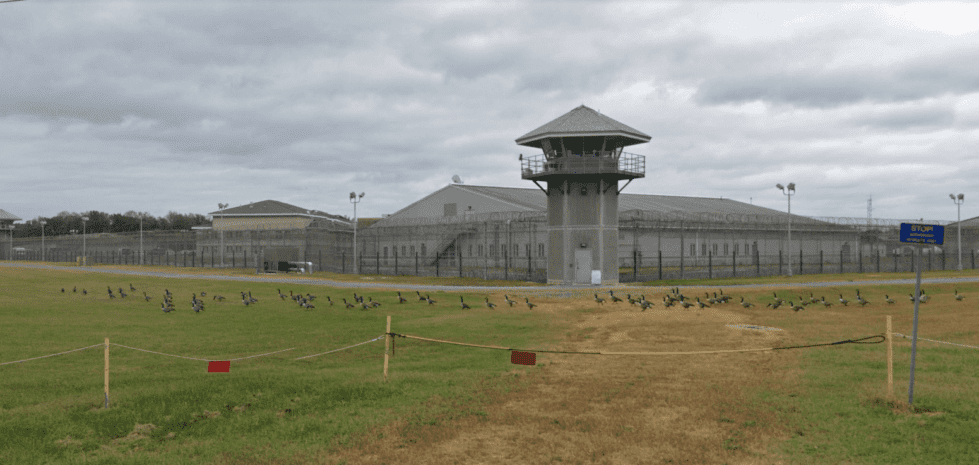A two-day virtual summit on Delaware’s correctional system ended with Sen. Marie Pinkney apologizing to current and former inmates for perceived failures in the state’s criminal justice system.
“To those who have been involved in our justice system or to those that love people that have been involved in our justice system, we apologize for where we failed you,” the New Castle senator said. “We will continue to do everything we can to make that right and to create better systems and opportunities moving forward.”
The summit, which took place Tuesday and Wednesday, featured national speakers, a community listening session and a series of roundtable discussions.
They addressed the physical and mental wellness of incarcerated people, the impacts of the juvenile justice system, the experiences of correctional staff and the state’s expanding re-entry programs.
The event included presentations from the Delaware Department of Correction, Department of Labor, Department of Services for Children, Youth and their Families, Office of Defense Services, ACLU Delaware, Delaware Center for Justice, Wilmington Hope Commission and the Group Violence Intervention Project.
Pinkney kicked off the summit Tuesday morning by asking attendees to refrain from using the word “inmates,” and encouraged them to instead say “incarcerated people.”
“One of our ground rules which I’ll probably discuss prior to every panel is that we will not be using the term ‘inmate’ at all for these next two days,” Pinkney admonished. “We will speak about people as if they are valued human lives, so there will be correcting if you hear the term inmate because we are going to make it known that we value human life.”
Pinkney, who is also chair of the Senate Corrections and Public Safety Committee, said it’s time to think of prisons as a way to rehabilitate rather than punish.
“Locking people up and throwing away the key is not justice,” she said. “It does not make our communities safer.”
She argued that despite investing more than $350 million each year in Delaware’s correctional system, people often return to the streets with even greater trauma than when they left.
Those incarcerated people are “disproportionally Black men – in decades-old prison facilities, where many receive inadequate medical care and few are given a chance to better their lives,” Pinkney said. “I am concerned that our refusal to confront the injustices in our own prison system is putting correctional officers at risk, failing our communities of color, and making our neighborhoods less safe.”
According to the Delaware Department of Correction’s 2020 Annual Report, more than 16,000 people are still either incarcerated or are being actively monitored by the state – a population larger than the town of Smyrna.
More than 65% of people released from Delaware prisons in 2016 were re-convicted within three years, according to the state’s Statistical Analysis Center, contributing to Delaware’s status as the state with the worst recidivism rate in the country.
Heather Zwickert, chief of planning, research and reentry with the Delaware Department of Correction, said Delaware’s recidivism rate has trended sharply downward in recent years and noted that states often determine their recidivism rates based on different metrics.
“There are no two states that define recidivism the same way,” Zwickert said. “So we can’t compare ourselves with other states and the recidivism rates — that’s kind of comparing apples to oranges.”
When analyzing Delaware’s figures under Virginia’s definition, which defines recidivism as a person being sentenced to a year or more in prison after having been released, Zwickert said Delaware is hovering around a 20 percent recidivism rate.
Near the end of the summit, Kevin O’Connell, chief defender of the Delaware Office of Defense Services, said the event was a great idea on the part of Sen. Pinkney and Rep. Melissa Minor-Brown, D-New Castle, who co-hosted the event.
O’Connell said that during the event it became abundantly clear that Delawareans and their families often feel that they lose their sense of dignity inside the state’s prisons.
“I’ve been going into our prisons and I’ve been interacting with clients since 1984,” O’Connell said. “I know there are some tremendous professionals who work in the Department of Correction, and it’s a very difficult job — and it’s a very dangerous job.”
“But I also know that there are some people who don’t do a very good job, who work at the Department of Correction, and some of that’s being brought to light, you know, in news articles recently and in a federal lawsuit.”
He recommended that stakeholders build off the progress they made during the summit by hosting monthly listening sessions with formerly incarcerated people to figure out what the state is doing right and what it could be doing better.
“I think we need to acknowledge that human dignity is the most important part of the equation,” O’Connell said. “People — if you treat them like humans, they’ll act like humans. If you treat them like animals, sometimes they’ll act like animals.”
Pinkney concluded the event by emphasizing that “the conversation does not end here.”
“This is just the beginning of what needs to be continued — community and state-organized partnerships — so that we can really make changes and fill in the gaps where holes are occurring.”
She called the event the “first inaugural State of the State Correction Summit,” suggesting that similar conferences might be held in the future.
Each session was separately recorded and posted online on Pinkney’s official Facebook page. Click here to watch the recordings.
Charlie Megginson covers government and politics for Town Square LIVE News. Reach him at (302) 344-8293 or [email protected]. Follow him on Twitter @cmegginson4.
Share this Post




